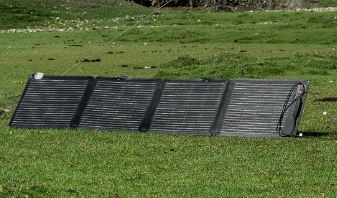Portable Solar Panels: Essential Maintenance for Long Lasting Use

Portable solar panels have become an indispensable asset for those seeking sustainable energy solutions on the go. Whether it’s for powering devices during camping trips, providing backup energy during emergencies, or enabling remote work, these panels offer a convenient and eco – friendly way to harness the sun’s power.
However, to ensure they continue to function optimally and have a long lifespan, proper maintenance is crucial. Neglecting maintenance can lead to a decline in efficiency, reduced power output, and even premature failure.
In this article, we’ll explore essential maintenance tips for the long – term use of portable solar panels, helping you get the most out of your investment.
Essential Maintenance Tips for Long-Term Solar Panels
Regular Cleaning for Maximum Efficiency
One of the most basic yet important maintenance tasks for portable solar panels is regular cleaning. Dust, dirt, leaves, bird droppings, and other debris can accumulate on the surface of the panels over time. Even a thin layer of grime can significantly reduce the amount of sunlight the panels can absorb, thereby decreasing their efficiency. To clean the panels, start by using a soft – bristled brush or a microfiber cloth to gently remove loose debris. Avoid using abrasive materials that could scratch the surface of the panel.
For more stubborn stains, mix a small amount of mild dish soap with water. Dip a soft cloth into the soapy solution and gently wipe the surface of the panel. Rinse thoroughly with clean water to remove any soap residue, as leftover soap can attract more dirt. It’s advisable to clean the panels at least once every few weeks, or more frequently if they are exposed to a lot of dust or pollutants. Cleaning your solar panels regularly will ensure they can capture as much sunlight as possible, maximizing their power – generating capabilities.
Proper Storage for Extended Lifespan
When not in use, storing your portable solar panels properly is essential for their longevity. Extreme temperatures, both hot and cold, can damage the internal components of the panels. If you live in an area with harsh winters, store the panels indoors in a dry, cool place where the temperature remains relatively stable. Avoid storing them in attics, basements, or garages where temperature fluctuations are common.
Similarly, in hot climates, don’t leave the panels in direct sunlight inside a closed vehicle for extended periods, as the trapped heat can cause the panels to overheat.
Additionally, make sure the storage area is free from moisture. Moisture can lead to corrosion of the panel’s electrical connections and damage the photovoltaic cells. If possible, store the panels in their original packaging or use a protective cover to shield them from dust and potential impacts.
Also Explore: Is Mobile Shower Unit Business Profitable?

Regular Inspections and Checks
Periodic inspections are key to identifying and addressing any potential issues with your portable solar panels before they become major problems.
Check the panel’s surface for any signs of physical damage, such as cracks, chips, or scratches. Even minor damage can affect the panel’s performance and may lead to further deterioration over time.
Examine the electrical connections, including cables and connectors, to ensure they are secure and free from corrosion. Loose or corroded connections can cause power loss or even pose a safety hazard.
Also, keep an eye on the performance of the panels. If you notice a significant decrease in power output compared to when you first purchased the panels, it could be a sign of a problem.
Some portable solar panels come with built – in monitoring systems that can provide data on their performance. If yours doesn’t, you can use a multimeter to measure the voltage and current output of the panel under sunlight to assess its functionality.
Avoiding Improper Usage
To maintain the long – term use of your portable solar panels, it’s important to avoid improper usage. Don’t overload the panels by connecting too many high – wattage devices simultaneously, as this can put excessive strain on the panel and its components. Always refer to the manufacturer’s guidelines regarding the maximum power output and compatible devices.
Moreover, never attempt to repair or modify the solar panels on your own unless you have the necessary technical expertise. DIY repairs can void the warranty and may lead to more serious damage or safety risks. If you encounter any issues with your panels, contact the manufacturer or a professional solar technician for assistance.
Conclusion
Proper maintenance is the key to ensuring the long – term use and optimal performance of your portable solar panels. By following these maintenance tips, including regular cleaning, proper storage, routine inspections, and avoiding improper usage, you can extend the lifespan of your panels and continue to enjoy the benefits of sustainable, portable power.
Investing a little time and effort in maintenance will not only save you money in the long run by avoiding premature replacements but also contribute to a more environmentally friendly and reliable energy solution for all your outdoor and emergency power needs.



